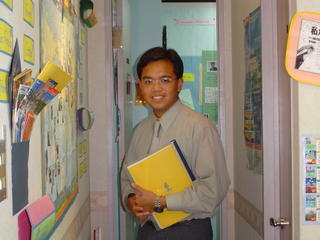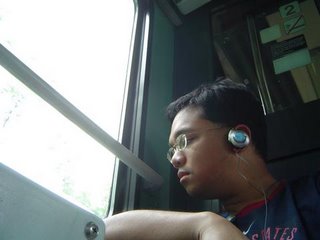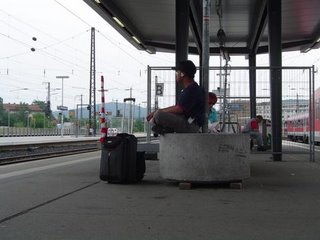
During last season, the first in which the
Los Angeles Galaxy and
Chivas USA started to use electronic signboards during games at the Home Depot Center, you could see, behind the corner flags and in between the gaps where the signboards would've connected, the prominent AEG logo, for the
Anschutz Entertainment Group. For the rest of us, it is a game; the image of it all, however, said that AEG regarded it as an event, big enough on which to stake its name.
Whether or not that's true is complicated to unravel. The LA Galaxy remains AEG's crown jewel in
MLS, among the other teams that it owns or has owned. AEG is responsible for making the HDC and Toyota Park for the
Chicago Fire a reality, with Red Bull Park not too far behind, while
DC United has plans in the works.
And that's where AEG stumbles. Fans of the
MetroStars/New York Red Bulls can't say they had a happy relationship with Philip Anschutz' crew, which put into the New York market a fabled-bumbling idiot in Nick Sakiewicz, who was absolutely run over by NJSEA and state politicians during his time with the team. On the other coast, San Jose fans, who hadn't gotten over seeing Landon Donovan move from the Bay Area to Hollywoodland after a brief, failed stint in Germany, felt a second betrayal when
Earthquakes' owners relocated the team to Houston. It is in Texas where they found even more ways to blow it by alienating would-be fans from supporting the team, either by initially going with the name Houston 1836, or by backtracking on their decision and changing it to
Dynamo. Even in LA, attendance has declined for a team struggling to get out of a last place tie in the West with
Real Salt Lake.
No doubt, AEG-owned teams, past and present, and their fans have faced adversity at every turn, and the verdict is still out on whether the owners have done right by the paying public.

We would hope, however, that nothing and no one are judged by their failures and struggles alone. Hopefully not, otherwise Philip Anschutz would not have been inducted into the
National Soccer Hall of Fame today.
An award previously given only to the highest figures in Alan I. Rothenberg (successful in bringing the 1994 World Cup to the United States), Lamar Hunt (Major League Soccer's other major benefactor), and the US Women's National Team (inaugural champions of the FIFA Women's World Cup in 1991), the National Soccer Medal of Honor now has a fourth recipient in AEG's owner.
It is yet to be seen how history really will judge AEG's involvement in United States soccer, as part of that will be determined by how well its current and former teams fare in the league's growth years just begun. But it is safe to say that, without Anschutz and his eye for the potential of Major League Soccer, to say nothing of the massive financial vehicle that is the support system of, at present, four of the league's twelve teams, the American game would be in dire straits.
It was in conceivable trouble just prior to the 2002 FIFA World Cup. The USMNT had something to prove after finishing dead last in 1998, the league had pulled the plug on the Tampa Bay Mutiny and the Miami Fusion, and the league's investors/operators had given Commissioner Don Garber just ten years to get it together, where failure would lead to a future very uncertain, but certainly dark. Under these circumstances, it would have been reasonable for Hunt and Anschutz to just walk away from the enterprise. So many fans had before, and many more still were unconvinced of MLS, opting instead to support European and South American soccer.
That Anschutz persevered with his investment in American soccer is a testament to his influence in the game. The National Soccer Hall of Fame requires that Medal of Honor recipients must have had a contribution to soccer that is
"so significant as to have changed the course of the sport’s history." In an American game bereft of highlights and prominent figures relative to soccer in other countries, the head of AEG qualifies as one of the latter. It may very well turn out to be a minor contribution, and asterisked by missteps and troubles, but it is a contribution not easily made, and it did have a profound impact on soccer in America.














